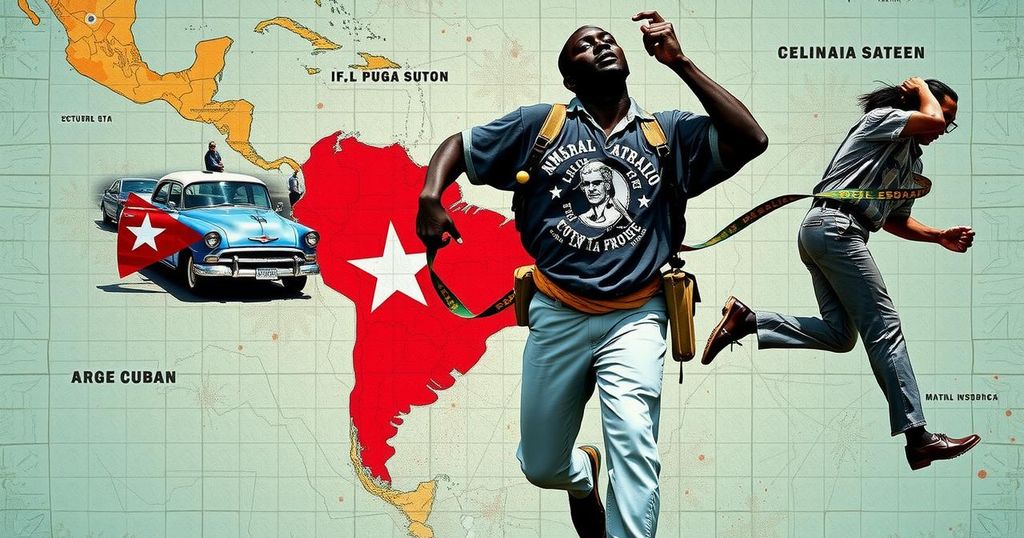The Cuban Revolution of 1959, led by Che Guevara, became a significant influence on revolutionary movements across Latin America. By advocating for profound social change, Guevara highlighted the interconnectedness of the struggles against imperialism in Latin America and the United States. His last campaign in Bolivia demonstrated his unwavering commitment to the revolutionary ideals of justice and equality, which resonate in contemporary socio-political discourses in the region.
The Cuban Revolution, culminating in the overthrow of Fulgencio Batista’s regime on January 1, 1959, served as a pivotal event inspiring revolutionary movements across Latin America. Che Guevara, a key figure in the revolution, emphasized the moral and existential journey of becoming a revolutionary as essential for the fighters involved. He articulated a vision of unity in the fight against imperialism, urging that only profound social transformation in Latin America could provide the necessary counterbalance to the imperialist practices of powerful nations, notably the United States.
Guevara’s discourse invoked a broader sense of awakening among the North American populace regarding their own government’s oppressive policies, which perpetuated inequality and suffering. He argued that the revolutionary struggles in Latin America and the United States must converge, reinforcing the idea that the fight for social justice in one region could catalyze change in another.
The dramatic disparity in industrialization and social conditions between the United States and its Latin American neighbors posed a dire threat. Guevara warned that without meaningful revolutionary changes, Latin America would increasingly succumb to dependence on and oppression by imperialistic powers, ultimately exacerbating poverty and social injustice in the region.
Despite the personal struggles and challenges faced during the Bolivian campaign, Guevara’s commitment to the revolutionary cause remained unyielded, even as he faced imminent capture and execution. His last words exemplified his courage and unwavering dedication to the ideals he embodied.
The published details of Guevara’s diary provide critical insights into his philosophy and reflections, securing his legacy as a revolutionary figure driven by the quest for justice and equality.
The topic of the Cuban Revolution is crucial to understanding the revolutionary dynamics that emerged throughout Latin America in the 20th century. The revolution not only changed the political landscape of Cuba but also served as a source of inspiration for numerous movements across the continent. Che Guevara, as a prominent revolutionary leader, voiced theories that emphasized armed struggle, human solidarity, and the necessity for profound socio-economic transformations to combat imperialism and foster true independence. His thoughts on the interconnectedness of Latin American struggles and their ties to U.S. opposition remain relevant in discussions surrounding social justice in contemporary Latin America.
In summary, the influence of the Cuban Revolution was significant in stimulating revolutionary consciousness in Latin America. Che Guevara’s dedication to the ideals of the revolution underscored the necessity for solidarity among oppressed peoples, which he highlighted as crucial for dismantling imperialism. The enduring relevance of Guevara’s philosophies demonstrates the ongoing struggles in Latin America to achieve true social justice and independence from oppressive systems.
Original Source: www.dailymirror.lk






